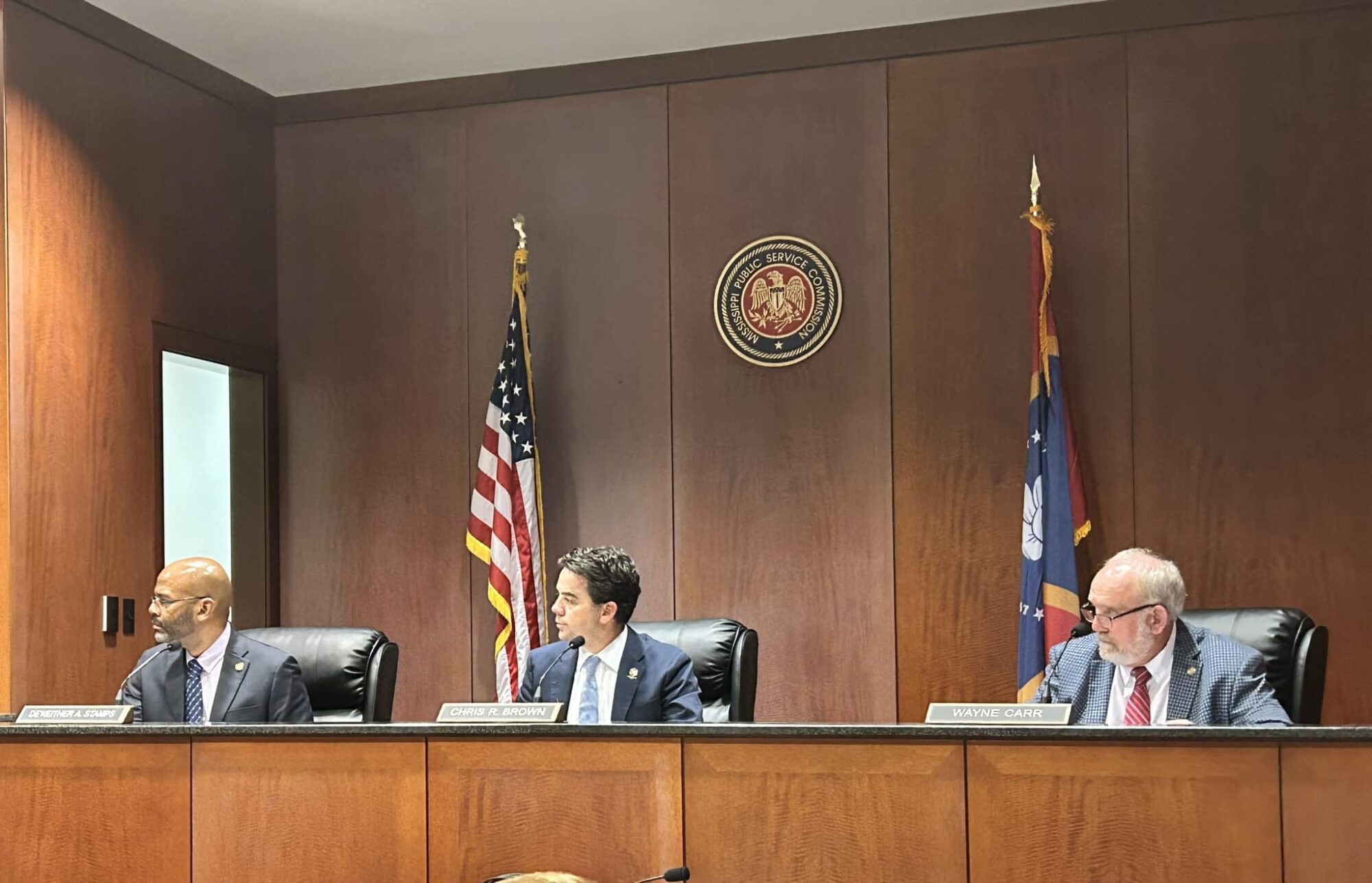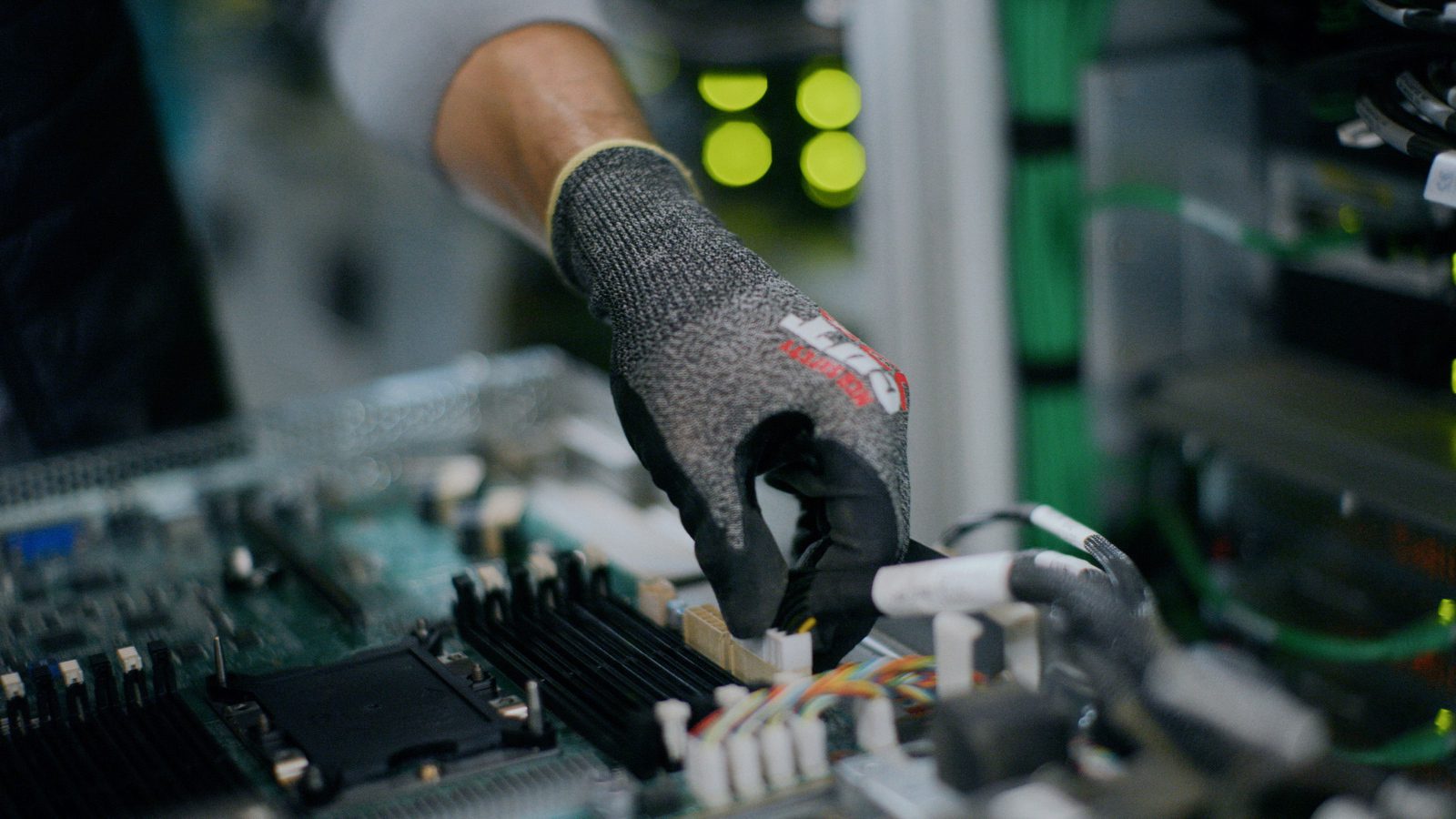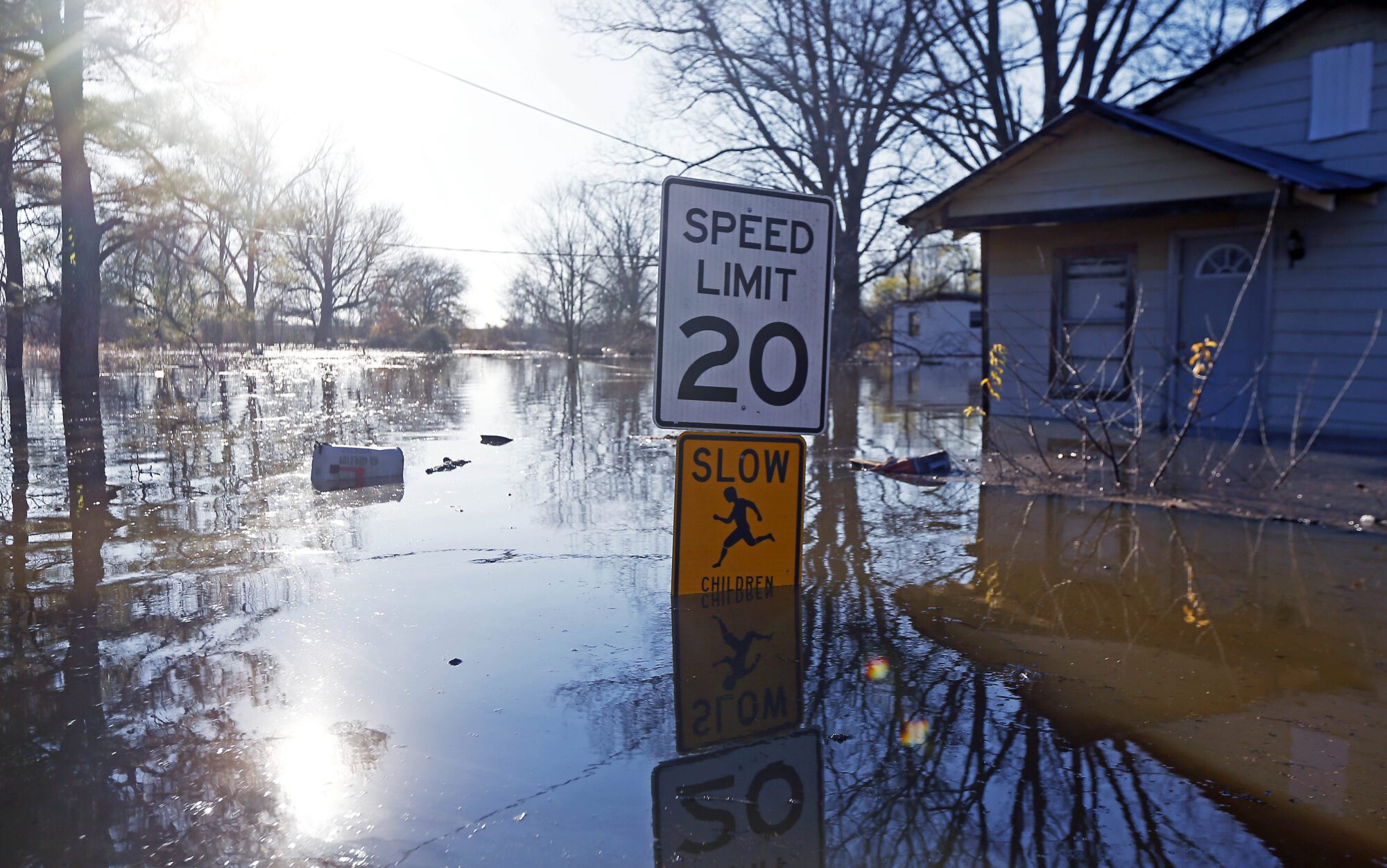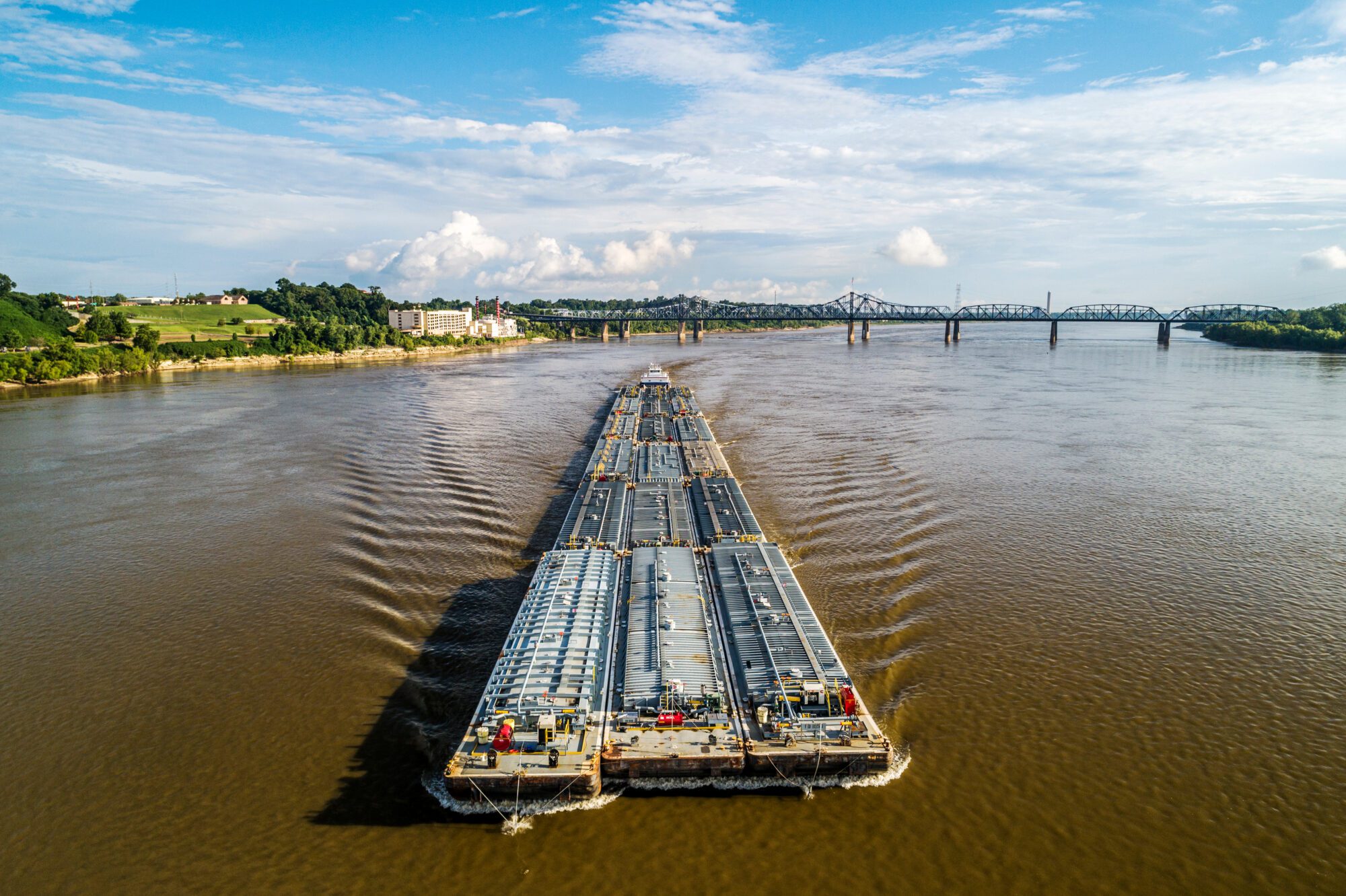
Mississippi Public Service Commission, February 2025. (Photo from MS PSC on Facebook)
- Kelley Williams writes that the short answer is politics.
You may wonder why Entergy has a monopoly on electricity in central Mississippi. Why aren’t there competitors? Doesn’t competition drive innovation, lower prices, and improve service? Don’t monopolies stifle competition, raise prices, and favor some customers over others?
The answer is yes. Monopolies are often bad. Competition is usually good. So why does Entergy have a government-granted monopoly? The short answer is politics. The long answer is more complicated. It gets into the theory of monopolies. Yogi Berra said: “In theory, there’s no difference between theory and practice. In practice, there is.” So what’s the theory? And what’s the practice?
Entergy is a “natural monopoly.” In theory, some markets are most efficiently served by a single provider. Electricity is one of them. Why? Because generating and delivering power requires massive investments in plants, transmission lines, and substations that need constant maintenance. These high fixed costs and relatively low variable costs (primarily fuel) make it impractical for multiple companies to build duplicate infrastructure. Imagine several sets of poles and wires lining every street—it would be wasteful and chaotic.
So governments grant monopolies for utilities like electricity, water, and sewage. The idea is that a single provider can deliver these essential services more efficiently. But monopolies don’t have incentives to keep prices low and services high. Customers are stuck with the monopoly; they have nowhere else to go. So governments also create rules to protect customers and empower regulators like the Public Service Commission (PSC) to enforce them. In practice, do the rules and regulators work?
Most of the time. But not when the Governor and the Legislature change the rules to favor Entergy and Amazon (its biggest customer ever) and handcuff the regulators – in the name of jobs and economic development. Effective and fair regulation depends on trust that political leaders and regulators will not play favorites. And will not make secret deals that impact a million people dependent on Entergy for power.
The Legislature in special session called by the Governor prioritized rapid electrical infrastructure expansion for Amazon’s data centers over the public interest (residential customers). Its 315-page bill authorized secret deals for Amazon and gave Entergy a “blank check” (no-bid contracts) to build plants and infrastructure for Amazon. It exempted Amazon and Entergy from the PSC’s statutory duty and authority to review projects and set rates.
That likely means higher rates for residential customers who will help pay for (subsidize) Entergy’s Amazon project. That has happened in Georgia (27% rate increase) and Virginia (rates expected to double) and other states with data centers. It’s called the data center effect. It may be worse here because of higher project cost due to Entergy’s blank check.
What causes the data center effect? Data centers use so much electricity that utilities must add plants, transmission lines, substations, and other infrastructure to serve them. But data centers don’t pay for all of these upgrades. Residential customers pay for part on the theory that their service is improved. Is it? Do they need it? The PSC would examine these questions and determine if they should pay more and how much – if it hadn’t been sidelined.
How much of the cost of the upgrades does Amazon pay? We don’t know. Its rate is secret. It may be lower than the existing residential rate. That may be justified as a volume discount. It may be fixed regardless of how much Entergy spends on the upgrades. Entergy may not care how much it spends because it gets a 10.5% guaranteed return on “prudent” investments. Who decides what’s prudent? The PSC. Oops, it’s on the sideline.
What does Amazon have to do? Invest $10 billion and create 1,000 permanent jobs. It now plans to spend $16 billion. Amazon must like its deal. And Entergy has a blank check for further system upgrades with a 10.5% guaranteed return.
Where does that leave residential customers: picking up part of a bigger tab. Entergy’s residential customers include 384,000 households. That’s about a million people. Entergy says 40% of those households live in poverty ($15,000 – $25,000 annual income). That’s 400,000 people who can barely afford life’s essentials subsidizing Amazon and Entergy. Who speaks for them?
Many states have consumer advocates to speak for small customers. Mississippi doesn’t. Some states empower nonprofits to have consumer advocates to represent small customers. Mississippi doesn’t. So nobody speaks for small customers here. Is that in the public interest?
Construction spending for the data centers is temporarily boosting the economy. Our political leaders take deserved credit for that. But their legacies may be the lasting harm to the poorest among us because of the deal they made.











